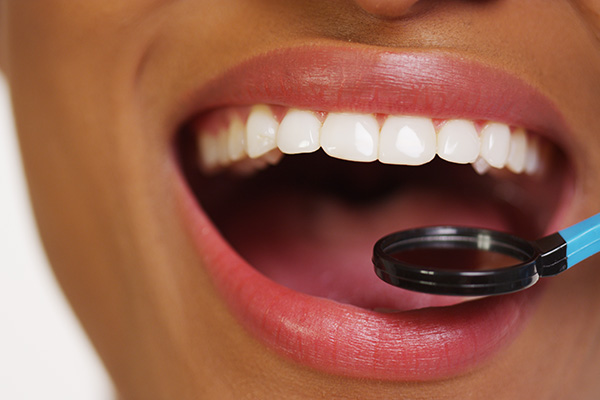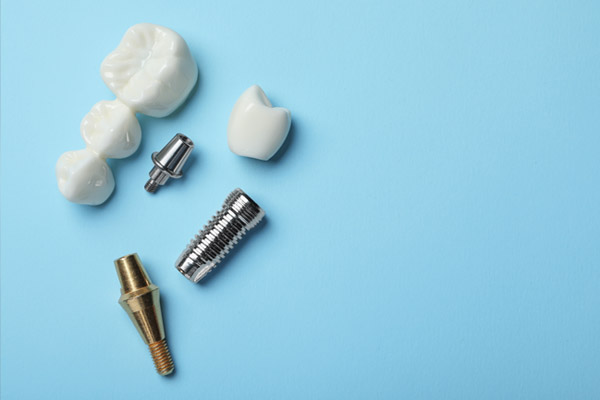How a Dentist Diagnoses Receding Gums
 Receding gums is a condition that leads to gum tissues pulling back from teeth roots. It leaves these roots exposed to acids made by oral bacteria that cause decay. Unlike the crown of a tooth, which is protected by enamel, teeth roots have an outer layer called cementum that is not as durable as enamel. This makes teeth roots more prone to decay than the rest of a tooth when the gum tissues that usually cover them start to recede. Receding gums can be a sign of periodontal disease, and it can also be caused by other factors, like genetics or brushing too hard.
Receding gums is a condition that leads to gum tissues pulling back from teeth roots. It leaves these roots exposed to acids made by oral bacteria that cause decay. Unlike the crown of a tooth, which is protected by enamel, teeth roots have an outer layer called cementum that is not as durable as enamel. This makes teeth roots more prone to decay than the rest of a tooth when the gum tissues that usually cover them start to recede. Receding gums can be a sign of periodontal disease, and it can also be caused by other factors, like genetics or brushing too hard.
Gum disease is one of the most common reasons that people seek dental care. It develops when plaque and bacteria get beneath the gum line, infecting the tissues there. It is characterized by chronic inflammation, and it can cause permanent damage to the bone and tissue structures in the mouth that hold teeth in place.
How a dentist diagnoses and treats receding gums
Diagnosing and treating receding gums starts with the dentist going over the patient’s medical history and discussing their habits. Gum recession can be a symptom of gum disease, but it can also be caused by other things like:
- Brushing too vigorously
- Using a hard toothbrush
- Hormonal changes in women
- HIV
- Genetics
- Smoking
- Diabetes
Receding gums can also be caused by medications that dry out the mouth. Saliva helps protect teeth and gums by removing plaque and bacteria. Less saliva in the mouth makes gum tissues more prone to the infection that causes gum recession. Signs that indicate that a patient’s gum recession is caused by periodontal disease include:
- Bad breath
- Tender or inflamed gums
- Gums that bleed when stimulated
- Pain coming from the base of teeth
- Shrinking gum tissues
- Loose teeth
- Exposed teeth roots
Treatment
During a patient’s evaluation, the dentist might use a probe to measure the depths of their gum pockets. A probe is a tiny dental ruler that is inserted into the patient’s gum tissues. It should not cause any pain. Healthy gum pockets should be anywhere between 1 to 3 millimeters. Gum pockets that are deeper than that often indicate the presence of periodontal disease. Diagnostic tests like X-rays might also be used to examine underneath the gumline. Once gum disease has been detected, treatment options that a dentist might recommend include:
- Medication: Topical or oral antibiotics can be used to manage the infection in a patient’s gums
- Gum grafts: Gum grafts can be used to restore teeth roots left exposed due to receding gums; these involve using tissues from other parts of the mouth to cover exposed teeth roots
- Root scaling and planing: This extensive form of teeth cleaning involves removing tartar from teeth roots and polishing them; it can help keep the gum tissues covering teeth roots healthy
Get treatment for gum recession
Give us a call or visit our Palm Beach Gardens clinic if you notice gum tissues pulling back from your teeth. Our dentist will evaluate your gums and educate you about treatment options.
Request an appointment or call Rafael E. Cordero, DDS PA at 561-763-9221 for an appointment in our Palm Beach Gardens office.
Recent Posts
Gum disease treatment is necessary to prevent your symptoms from worsening. Your periodontist will assess your gums first and then discuss the treatment options with you. Knowing when to see this dental care provider can help you make informed decisions regarding your procedures. Here are the details on when to see this dentist for gum…
A gum recession treatment can help you regain your smile and dental health. Receding gums can make you conscious about the way you look. It can also cause dental instability and sensitivity. Seeing a periodontist for your gum recession treatment can help you get the results you need.A general dental exam can spot gum recession.…
Dentists talk about the effects of gum disease from the time patients are young. There are good reasons for this, as the disease can have significant impacts on a person’s oral health. The disease is common among children, teens, and adults. Fortunately, it is highly preventable. For the most part, you can take some daily…


